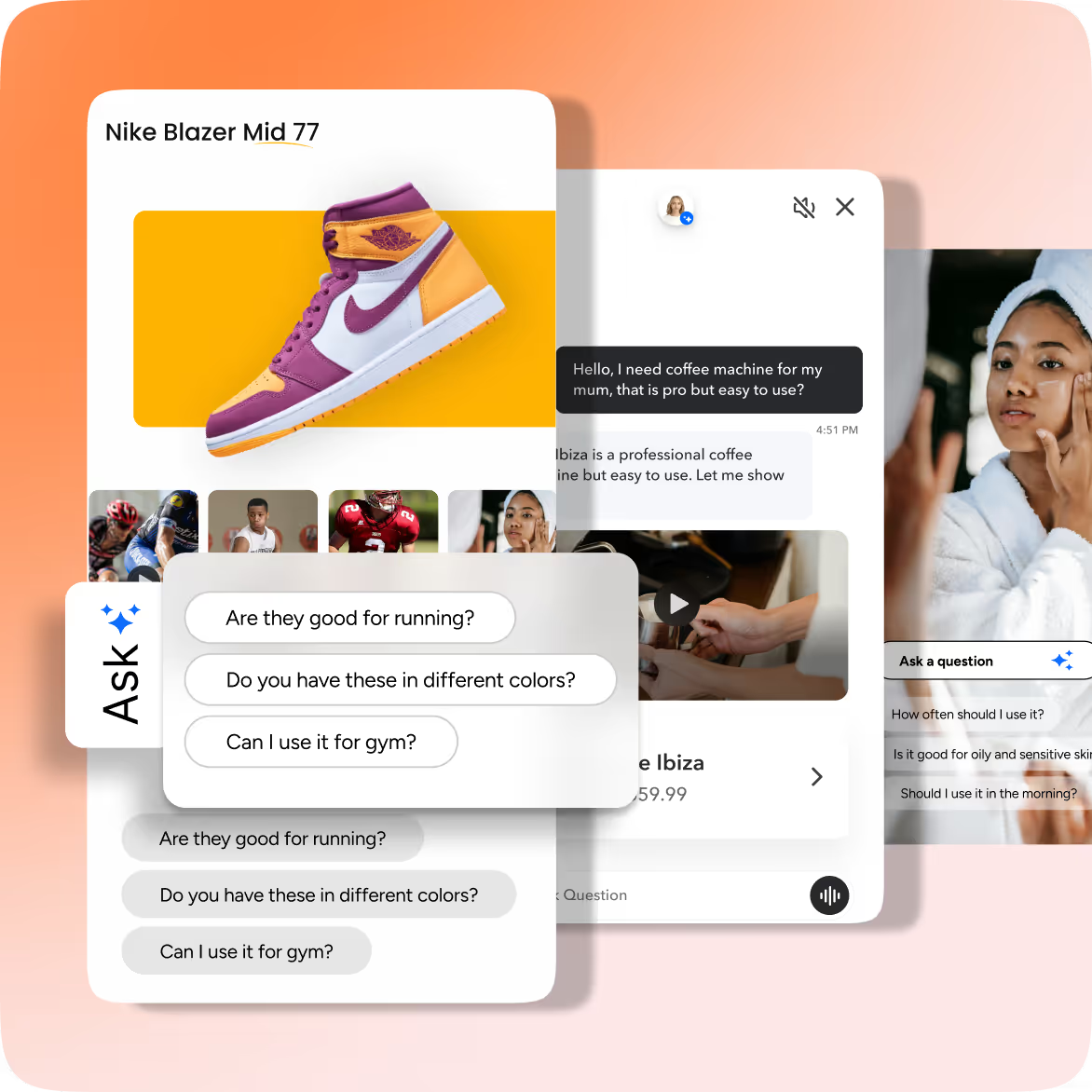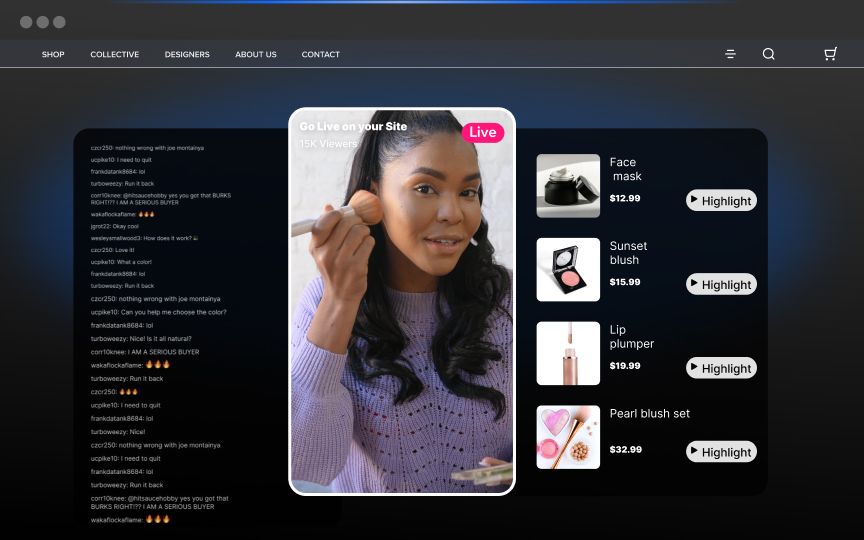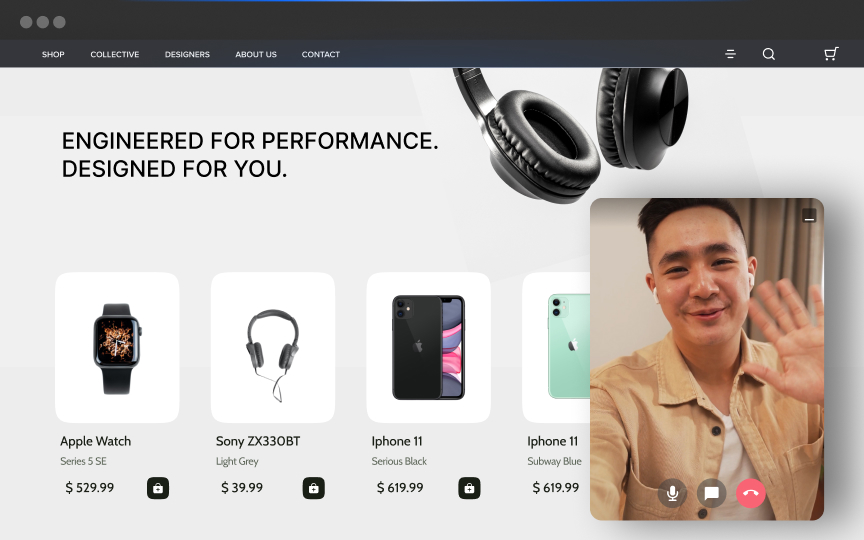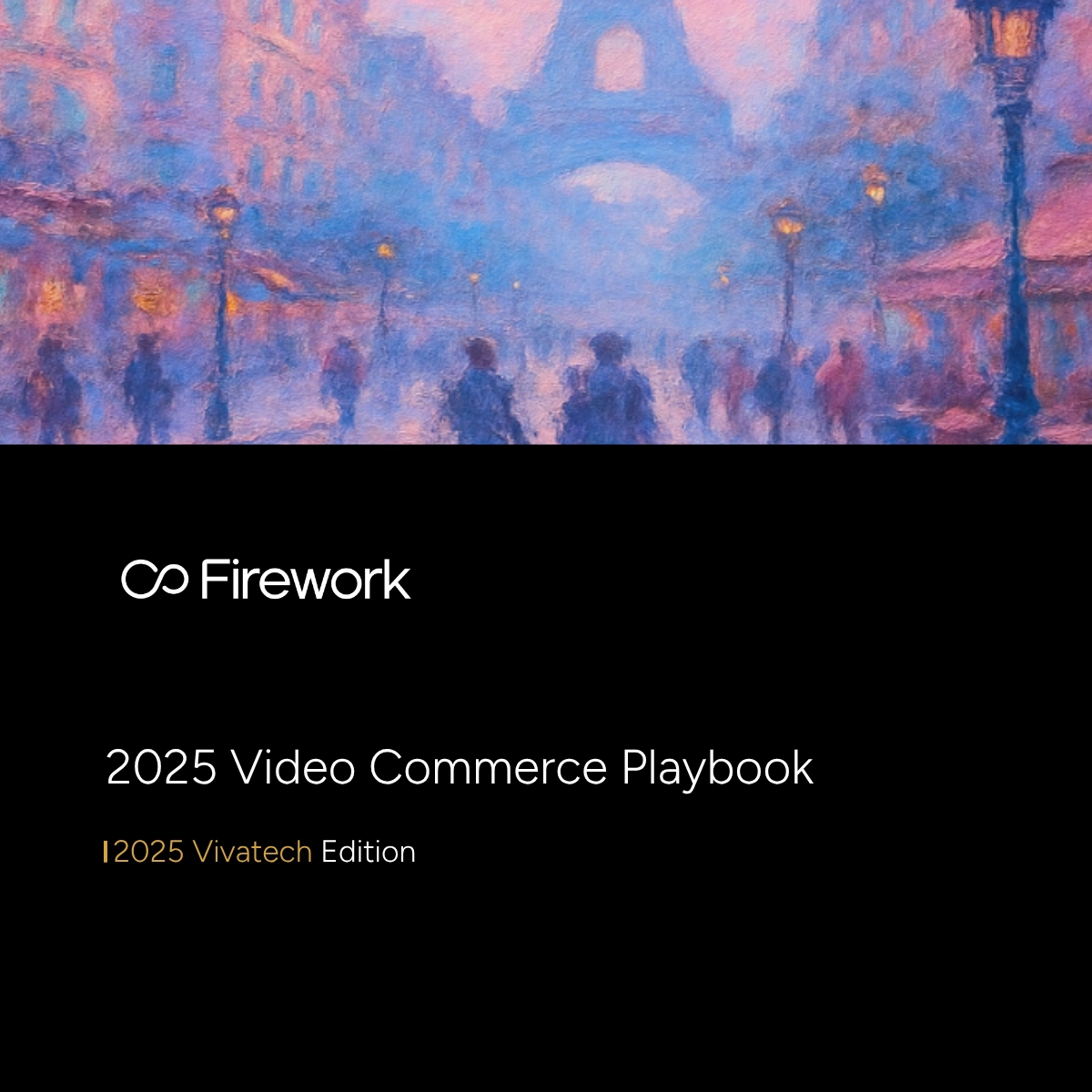In today's digital age, creating an engaging marketing strategy that connects with your target audience can be a challenging task. However, a livestream marketing strategy with influencer collaboration has emerged as an effective approach to achieve marketing and business success. By combining the power of livestreaming with the sway of influencers – both external and inhouse – brands can create a powerful marketing campaign that drives engagement, builds brand awareness, and increases sales. One of the key benefits of hosting livestream events on brand’s own website is the ability to provide your audience with a unique opportunity to engage with your brand in real-time and drive conversions.In this blog, we will explore the importance of using a livestream marketing strategy to drive engagement on your brand's own website and how to create a powerful livestream marketing strategy with influencer collaboration that can help you achieve your marketing goals.
1. Finding the Right Influencers
A. Identifying Your Target Audience
Before you start searching for potential influencers, it's important to identify your target audience. Who are your ideal customers? What are their interests and preferences? Understanding your target audience can help you to identify the right influencers who can effectively engage and resonate with them.
B. Researching Potential Influencers
Once you have identified your target audience, it's time to start researching potential influencers. There are several ways to find influencers, including searching for relevant hashtags on social media platforms, using influencer marketing platforms, and conducting manual searches on social media. Look for influencers who have a significant following within your target audience and who align with your brand's values and messaging.
In recent years, brands have been increasingly turning to their own employees as influencers for livestreams. This approach allows brands to showcase their company culture and values while also leveraging the knowledge and expertise of their employees. Using employees as influencers can also help to build trust and credibility with audiences, as they are seen as authentic and genuine representatives of the brand.
C. Factors to Consider When Choosing Influencers
When choosing influencers, there are several factors to consider:
- Relevance: The influencer should be relevant to your brand and your target audience.
- Reach: The influencer should have a significant following on their social media platforms.
- Engagement: The influencer should have a high engagement rate with their followers, which indicates that their followers are actively engaging with their content.
- Authenticity: The influencer should have an authentic and genuine relationship with their followers.
- Brand fit: The influencer's values and messaging should align with your brand.
- Previous collaborations: Look at the influencer's previous collaborations and partnerships to see if they have worked with brands in a similar industry or with a similar target audience.
By considering these factors, you can ensure that you choose the right influencers who can effectively collaborate with you to create a powerful livestream marketing campaign.
2. Planning the Livestream Marketing Strategy
A. Setting Campaign Goals
Before you start planning your livestream marketing strategy, it's important to define your campaign goals. What do you hope to achieve with your campaign? Do you want to increase brand awareness, drive website traffic, or generate leads and sales? Defining your goals can help you to create a focused and effective strategy that aligns with your overall marketing objectives.
B. Choosing the Right Platform
Choosing the right platform is crucial for the success of your livestream marketing campaign. When choosing a platform, consider your target audience and where they are most likely to engage with your content. It's also important to consider the features and capabilities of each platform, such as the ability to share links, monetize your content, and integrate with other marketing tools.
C. Creating a Content Calendar
Creating a content calendar is essential for ensuring that your livestream marketing campaign is organized and consistent. Your content calendar should include a schedule of all your livestream events, as well as the topics and guests for each event. You should also plan supporting content, such as social media posts, email newsletters, and blog posts, to promote your livestream events and engage with your audience before and after the livestream. Having a content calendar in place can help you to stay on track and ensure that your campaign is well-planned and executed.
3. Promoting the Livestream Event
A. Leveraging Influencer's Audience
One of the benefits of collaborating with influencers is the ability to leverage their audience to promote your livestream event. Ask your influencers to share the details of the event with their followers and encourage their followers to attend. This can help to expand your reach and attract a larger audience to your livestream event.
B. Creating Buzz through Social Media
Social media is a powerful tool for promoting your livestream event and generating buzz. Create social media posts and stories to share details about your event, including the date, time, and topic. Use hashtags to increase visibility and encourage your followers to share the posts with their networks. You can also use paid social media advertising to target specific audiences and drive more traffic to your livestream event.
C. Utilizing Email Marketing
Email marketing is another effective way to promote your livestream event and reach your target audience. Send out email newsletters to your subscribers with information about the event and why they should attend. Include links to register for the event and encourage subscribers to share the information with their networks. You can also send reminder emails leading up to the event to ensure that attendees don't forget to tune in.
4. Executing the Livestream Event
A. Preparing the Influencers and Hosts
Before your livestream event, make sure that your influencers and hosts are prepared and have everything they need. This includes ensuring that they have a good internet connection, a quiet and well-lit space for filming, and any necessary equipment. Provide them with an outline of the event and talking points to ensure that they stay on track and cover all the important information.
B. Setting up the Livestream Platform
Setting up the livestream platform is a crucial step in executing your livestream event. Choose a reliable and user-friendly platform that is appropriate for your target audience. Set up the livestream in advance to ensure that everything is working properly and that there are no technical issues on the day of the event.
C. Interacting with the Audience
Interacting with the audience during the livestream event is important for keeping them engaged and interested. Encourage your hosts and influencers to answer questions and respond to comments in real-time. Use polls and surveys to gather feedback and involve the audience in the conversation. This can help to create a more interactive and engaging experience for attendees.
5. Analyzing and Measuring Success
A. Collecting Data and Analytics
Collecting data and analytics is essential for measuring the success of your livestream marketing campaign. Use analytics tools to track metrics such as views, engagement, and conversions. You can also gather feedback from attendees through surveys and polls to gain insights into their experience and satisfaction with the event.
B. Evaluating Campaign Results
Once you have collected data and analytics, it's important to evaluate the results and assess the success of your campaign. Did you achieve your campaign goals? How did your metrics compare to your benchmarks? Use this information to identify areas for improvement and inform your strategies for future campaigns.
C. Adjusting Strategies for Future Campaigns
Based on your evaluation of campaign results, adjust your strategies for future campaigns. Identify what worked well and what could be improved, and make changes to your approach accordingly. Use your insights to refine your targeting, messaging, and execution to ensure that your future campaigns are even more successful.

Looking to own the digital experience for their 2022 “Girl of the Year” announcement, American Girl, leveraged Firework technology to host a Livestream on their own digital properties and their media partners' social channels. Celebrity and figure skating gold medalist Tara Lipinski hosted American Girl's livestream, leading the viewers through a quiz and a craft and then conducting a couple of interviews. The livestream featured engaging content, delivering a 25% engagement rate.In conclusion, creating a powerful livestream marketing strategy with influencer collaboration can be a game-changer for businesses looking to boost engagement, build brand awareness, and drive sales. By carefully selecting the right influencers, planning a strategic livestream campaign, and executing it flawlessly, brands can create a memorable and effective experience for their audience.The use of livestreaming and influencer collaboration allows for real-time interaction and personalization, ultimately leading to stronger relationships with customers and increased brand loyalty. As the world continues to shift towards digital and remote experiences, livestream marketing with influencer collaboration is poised to be a valuable tool for businesses looking to stay ahead of the curve.
Unlock Exclusive Insights
By submitting this form, you agree to Firework's privacy policy and consent to receive personalized marketing communications. You can unsubscribe at any time.






























